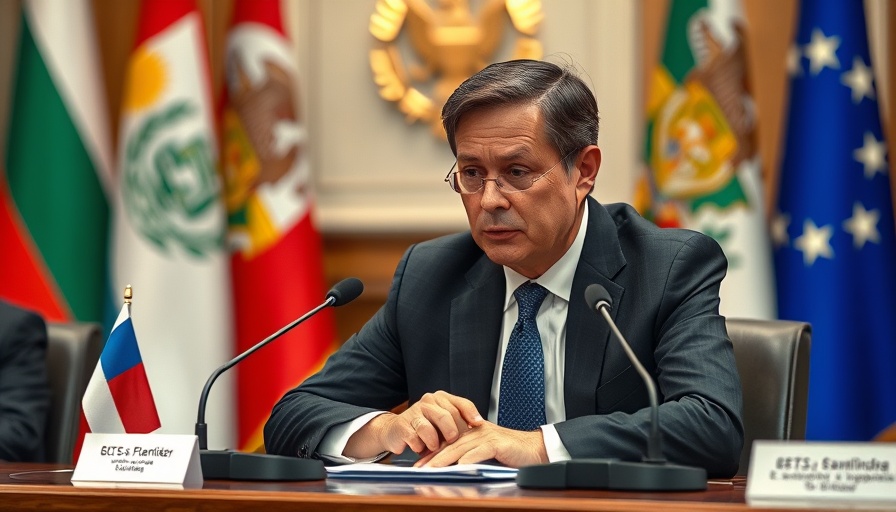
U.S. Ambassador Michael Gonzales: A Heartfelt Stand for Health
In a world where health and wellness are often overshadowed by bureaucratic indifference, U.S. Ambassador to Zambia, Michael Gonzales, recently showcased the profound human impact of government actions by shedding tears during a significant press conference. His emotional response came as he announced a $50 million cut in U.S. aid for health-related efforts, primarily aimed at combatting preventable diseases in Zambia, as a result of rampant drug theft. The troubling reality that medications meant for the most vulnerable in Zambia were being sold for profit struck a chord not only in his heart but also in the hearts of nations invested in global health.
The Disheartening Revelation of Theft
The ambassador's distress is rooted in an alarming discovery that began in late 2021. Gonzales and his team embarked on a mission to understand the fate of the significant medical investments made by the U.S. into Zambia—to the tune of $450 million per year for health-related initiatives. What they uncovered was a systemic issue: after extensive investigations, it was revealed that 95% of pharmacies in Zambia were selling stolen medications, including those donated free for humanitarian purposes. This was not just theft; it was an organized crime spearheaded by individuals in powerful positions.
Connection to Community Health: Why It Matters
For Gonzales, the repercussions of these findings were not just numbers; they represented real people—families in rural Zambia who might lose out on essential health care because of these scandals. As he poignantly stated, "I know it's going to be the poor family in rural Zambia whose baby gets malaria and they won't have access to antimalarials." This deep-rooted understanding of the personal toll of policy and governance is essential in today’s landscape of health and wellness, which sees a growing disconnection from community values.
Health Investments Paying Off—For Now
Despite this recent setback, Gonzales highlighted the success of health programs funded by foreign assistance. The statistics are compelling: 98% of HIV-positive individuals in Zambia are aware of their status, and 99% are receiving treatment that is controlling the virus. This display of data not only underscores the efficacy of international support but also emphasizes the critical role that ethical practices play in sustaining such progress.
What Needs to Change?
The theft scandal also raises questions about the responsibility not only of the Zambian government but of international aid organizations. More stringent checks and a more profound commitment to transparency could pave the way for better allocation of resources. It is not only about access to medications but also about ensuring that these resources reach the people who need them the most.
Emotional Resonance: Why Stories Matter
In today's media-driven world, stories such as that of Gonzales resonate deeply because they remind us of the stakes involved in health diplomacy. As individuals navigate their well-being—mindfully considering current trends in holistic wellness practices or seeking updates on nutritional health—it becomes crucial to recognize that behind every statistic, there are real lives in pursuit of health.
Looking Ahead: The Way Forward
As the conversation around health and wellness evolves, the insights derived from Gonzales’ experience can be pivotal. Community health initiatives must be reassessed to incorporate lessons from lost investments. As advocates for wellness and thriving communities, attention to preventive health strategies, accountability for resources, and reinforcement of community bonds are essential to combatting such crises in the future.
In conclusion, Michael Gonzales stands as a testament to the importance of empathy and the human element in health-related diplomacy. His tears reflect not only a personal commitment to the health of Zambians but also a broader call to action for all of us: to be aware, to question, and ultimately, to advocate for those without a voice. Let's take inspiration from his story and work towards a united front in health advocacy.
 Add Row
Add Row  Add
Add 




 Add Row
Add Row  Add
Add 

Write A Comment